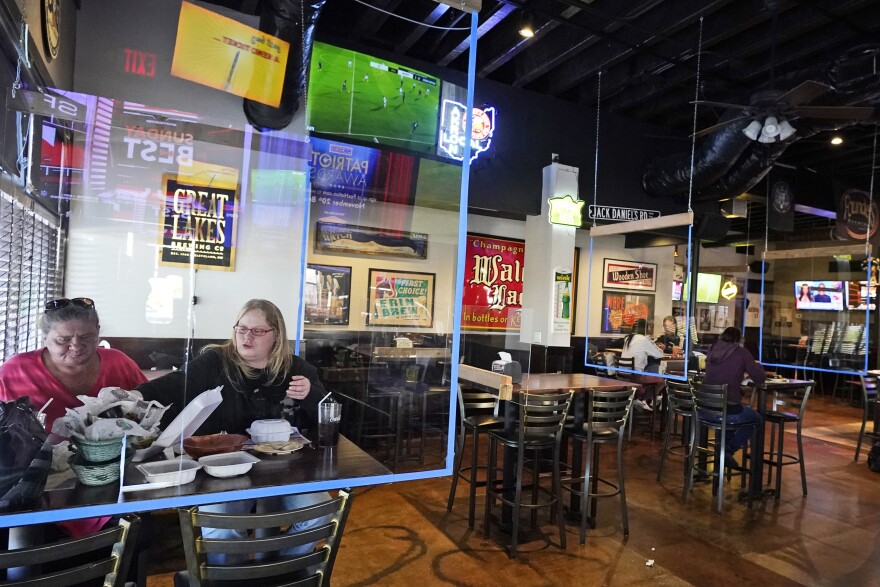Ohio's public health departments are getting something Gov. Mike DeWine says they've wanted for a long time: rapid, at-home COVID-19 tests. DeWine on Thursday announced a partnership with Abbott Labs and digital health care company eMed to administer the rapid antigen tests.
The state will spend $50 million in CARES Act funds for the tests – which will buy 2 million tests at $25 each.
Abbott Labs will provide the tests and eMed personnel will offer live guidance to help people properly administer the test in their homes.
"People are anxious. They're perfectly willing and glad to do [a test] at home so they don't have to go anywhere, but they want to make sure they're performing the test correctly," said eMed CEO Dr. Patrice Harris, a psychiatrist and former president of the American Medical Association, said during the governor's coronavirus briefing.
Harris said a person will log on to eMed's platform, which she described as being similar to Skype, and will be connected to one of their live guides to help them with administering the test. Results are available in 15 minutes.
DeWine said this type of testing will help local health departments tamp down on outbreaks by administering tests quickly and implementing immediate contact tracing to limit spread.
Ohio Department of Health medical director Dr. Bruce Vanderhoff said these antigen tests, which originally were considered unreliable, have come a long way.
"We have a very high degree of confidence now in a positive test result from these tests," Vanderhoff said, adding that "false positives are extremely rare."
DeWine himself had an experience with a false positive from a COVID-19 rapid antigen test in August, when a positive result forced him to cancel a planned meeting with then-President Trump. DeWine then came back negative in two, more thorough followup tests.
Curfew Extended
After some recent days of decline, COVID-19 case numbers, deaths, hospitalizations and ICU admissions are up again with 7,271 new cases and 109 deaths reported today. In addition, 306 people entered the hospital in the last 24 hours and 35 were admitted to intensive care units.
"One out of four people in ICUs in the state of Ohio are there because of COVID-19," DeWine said. "Out of any 200 Ohioans, at least one has tested positive for COVID-19 in the past two weeks."
The state's public health alert map shows 83 counties remain red, four are orange and one—Hamilton County—remains under the highest level, purple, for spread of COVID-19.
Because of that, the governor said he is extending the state's 10 p.m.-5 a.m. curfew that was due to expire January 23.
"We're still in a very difficult time where we're trying to balance letting people make a living, do what they want to do, but at the same time not let this get out control," DeWine said.
He did not say how long the curfew would be extended. DeWine said the way out of the pandemic is the vaccine, and the state continues to seek supply increases but at this point expects the same amount next week that it received this week.
Next week, Ohioans age 75 and up will be added to the groups eligible to receive the vaccine. DeWine said if they get the supply, providers have indicated they have ample capacity to administer more shots, and the state has identified 100 sites where they could administer vaccines at large scale.
DeWine began the briefing by showing people being vaccinated in Summit, Hamilton and Lawrence Counties. Evelyn Walker received the shot from Dr. Erika Sobolewski of Summit County Public Health. "I wanted to protect myself and others," she said.





